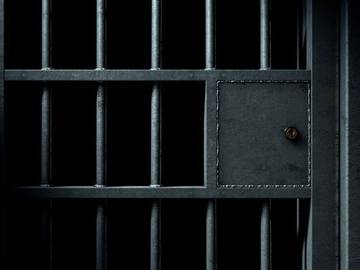What to KnowJail and prison are often used interchangeably as places of confinement. If you want to be specific jail can be used to describe a place for those awaiting trial or held for minor crimes, whereas prison describes a place for criminals convicted of serious crimes.
There are many words in English with multiple meanings; with many of these the intended meaning of a word with multiple senses can easily be inferred by the context in which it is used. A fine example of this is the word penitentiary, which may mean (among other things) either “a public institution in which offenders against the law are confined for detention or punishment” or “an officer in some Roman Catholic dioceses vested with power from the bishop to deal with cases of a nature normally handled only by the bishop.” See if you can tell which one is meant in the two examples below.
And to shew how well they approved of the Gunpowder Treason at Rome, Gerard, and Greenwoll or Tesmond, two of the principal Conspirators, were so well entertained there, that escaping thither from the Justice of this Nation, the one was made the Popes Penitentiary, and the other lived in the English Colledge there, and officiated often in St. Peters in the Vatican.
— Gilbert Burnet, A sermon preached before the Aldermen of the city of London, 1681Pleading guilty, Earl and Lester Swan were sentence to one year and one day in the state penitentiary for stealing a 1941 Chevrolet valued at $100, from Comer Hammett.
— The Decatur Daily (Decatur, AL), 1 Aug. 1947

We hope you got that right.
While it may be quite simple to tell which sense of penitentiary is being used (made all the easier by the fact that the religious one is now very rare), other words have shades of meaning that are not always obviously discernible through context. Prison and jail are both excellent examples of this. Each word has a general use and a specific one, and it is not always easy to tell which one is being used.
He was sentenced to twenty years in jail, but was released before his time expired for good behavior.
— Columbus Dispatch (Columbus, OH), 30 Dec. 1923He was sentenced to twenty years in prison, but was released after serving fourteen years.
— Wood County Reporter (Wisconsin Rapids, WI), 21 Mar. 1907
'Prison' vs. 'Jail'
We define prison as “a place of confinement especially for lawbreakers”, and jail as “a place of confinement for persons held in lawful custody.” Many people feel that there are specific uses for each of these words, and that they should never be used interchangeably.
In fact, many in society (including the media and popular culture) incorrectly use the terms "jail" and “prison" interchangeably.
— Ronald Burns, Journal of Criminal Justice Education, Spring 2002It's amazing how many lawyers can't seem to differentiate between the two — jail terms are for offenses that call for a year or less behind bars, and prison is for crimes that mandate a year or more of incarceration.
— Sue Morrow, Reno Gazette-Journal (Reno, NV), 18 May 2007While key differences exist between jails and prisons — jails typically house people awaiting trial and those serving short sentences, while prisons confine convicts long term — the Justice Department’s study remains illustrative of life behind bars….
— The Boston Globe (Boston, MA), 20 Apr. 2017
Those in favor of semantic exactness with these words will be glad to know that we do include specific uses for each word. Prison is “an institution (such as one under state jurisdiction) for confinement of persons convicted of serious crimes” and jail is “such a place under the jurisdiction of a local government (such as a county) for the confinement of persons awaiting trial or those convicted of minor crimes.” If you are serving a sentence for a misdemeanor (such as stealing something of small value), or if you are waiting trial, it will likely be in a jail. If you are serving a sentence for a serious crime (such as murder) it will likely be in a prison.
Interchangeable Use
However, both jail and prison are very old words, both in use for well over 700 years, and this distinction has not always been observed. In modern use the words are used interchangeably often enough that it is difficult to define either one as always meaning a certain thing.
As evidence of this lack of distinction The New York Times, in a story from 1964, employed jail in the headline and then used prison in the very first sentence of the story.
Hoffa Gets 8 Years in Jail And a Lecture on Justice.
—(headline) The New York Times , 13 Mar. 1964James R. Hoffa was sentenced to eight years in prison and fined $10,000 today for attempting to rig a Federal jury.
— The New York Times , 13 Mar. 1964
It is worth noting that both words have meanings that are either figurative, or somewhat more general; prison may also mean “a state of confinement or captivity,” and jail may refer to “confinement in a jail.” Both words also function as verbs, and in this role are less influenced by misdemeanors or felonies than they would be as nouns. If you wish to avoid ambiguity in use you should use prison for serious crimes with longer sentences, and jail for less serious crimes, or for detention awaiting trial. And penitentiary, when referring to a hoosegow, often has the specific meaning of “a state or federal prison in the U.S.”



